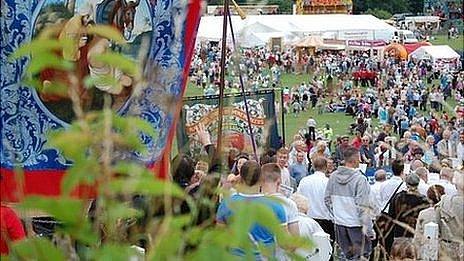Durham Miners' Gala: Continuing success of the city's celebration
- Published
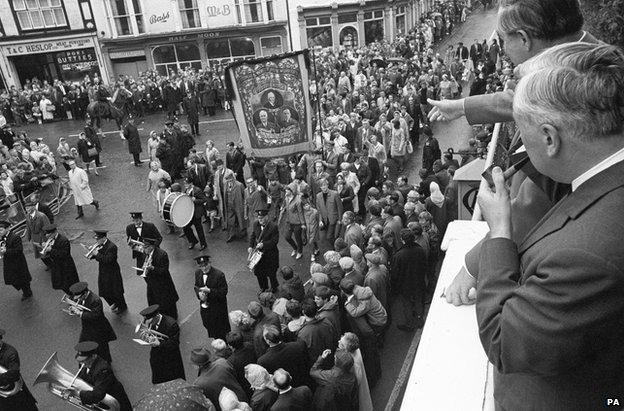
In 1967 prime minister Harold Wilson was at the gala but politicians attend less regularly now
The once mighty Durham coalfield saw its last pit close in 1993. And yet its annual miners' gala is going strong, with attendance growing in recent years.
Absorbed in concentration, eight-year-old Millie is cutting up cotton strips to stick on to her school's pride and joy - a multi-coloured miners' banner.
The artwork combines modern images from Silver Tree Primary School in Ushaw Moor, County Durham, with pictures of the village's past as a mining community - a miners' lamp, a pick axe and a coal wagon.
Since 1871 scores of banners new and old - each one representing a colliery community - have been paraded through the streets of Durham as part of the city's gala celebrations. This year's event - on Saturday - will be no different.
Mining disappeared from Durham in 1993 but the traditions of the gala remain
In recent years, the number of banners has increased as schools and community groups have embarked on restoring them or making new ones.
Ushaw Moor's pit closed in 1960 but there is still a fascination with the area's mining past - a clue to why the gala remains one of the largest union-organised gatherings in the country.
"We have been learning a lot about mining - it's really interesting," Millie told me, adding that she never misses the gala.
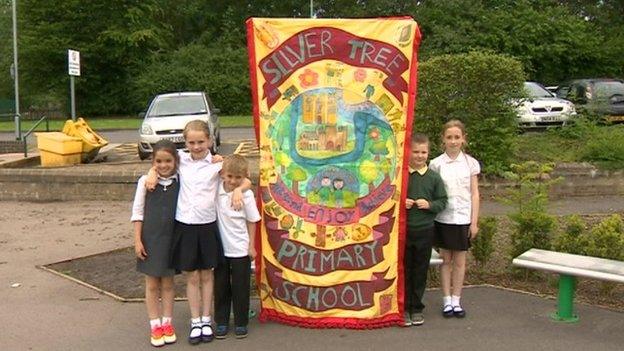
Pupils from Silver Tree Primary School have made their own banner for the gala
Artist Sally Southern, who has been working on the banner project, said: "Some of them have grandparents who were miners so I think its important to keep that heritage going."
The gala - also known as the Big Meeting - begins with a procession of brass bands and banners, culminating with political speeches on the city's racecourse followed by a service in Durham Cathedral.
When the last County Durham pit closed in 1993 there were fears for the gala's future but in the past few years attendance has been growing, with an estimated 120,000 turning out last year.
Professor John Tomaney, of University College London, is chairing a conference on the gala's wider significance.
"The gala is an incredibly lively, vibrant occasion which has gone through a tremendous re-invention," he said. "Primarily what it is these days is an expression of the value of community.
"These are communities which have been through a lot but maintain this strong sense of identity."
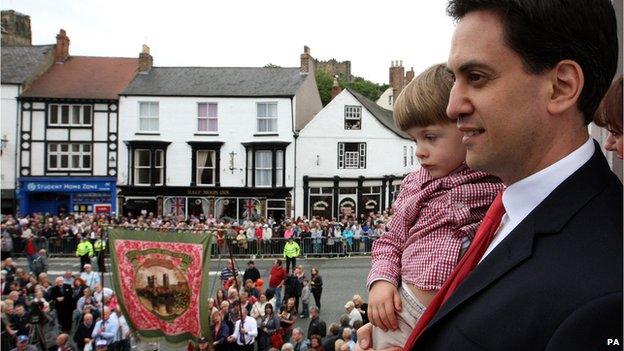
Ed Miliband attended the 2012 gala with his family - the first Labour leader to do so for 23 years
In the past, Labour leaders were regular speakers at the gala but in recent decades their visits have become less common.
Ed Miliband became the first Labour leader to address the gala for 23 years in 2012.
This year, most key speakers will be union leaders, including Unite's general secretary Len McCluskey and Chris Keates, general secretary of teaching union NASUWT.
Gala organiser and chairman of the Durham Miners Association, Alan Cummings, said the event still has a political dimension.
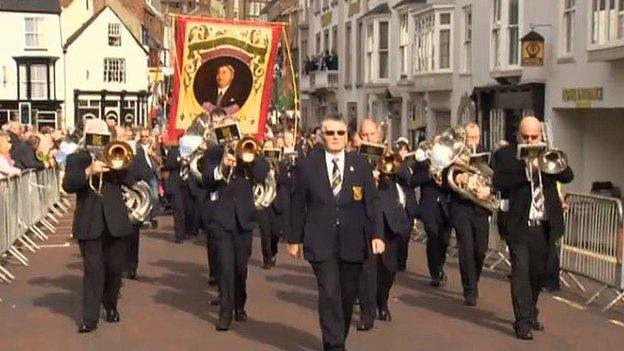
Organisers said the 2012 celebration had the largest turnout since the 1960s
Mr Cummings said: "These villages have suffered greatly since the pit closures - and successive governments both Labour and Conservatives haven't done anything for them.
"So we need to be invigorated, we need to hear those speeches and we need to do something about it."
- Published13 July 2014
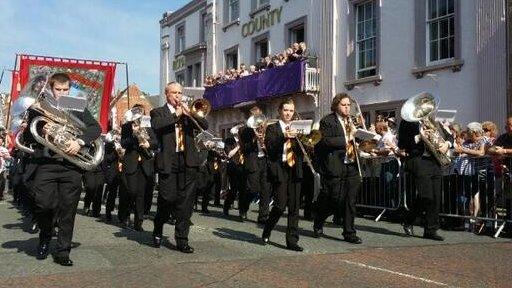
- Published13 July 2014
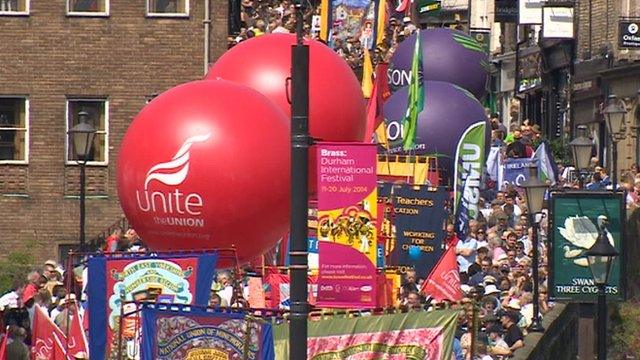
- Published6 March 2013
